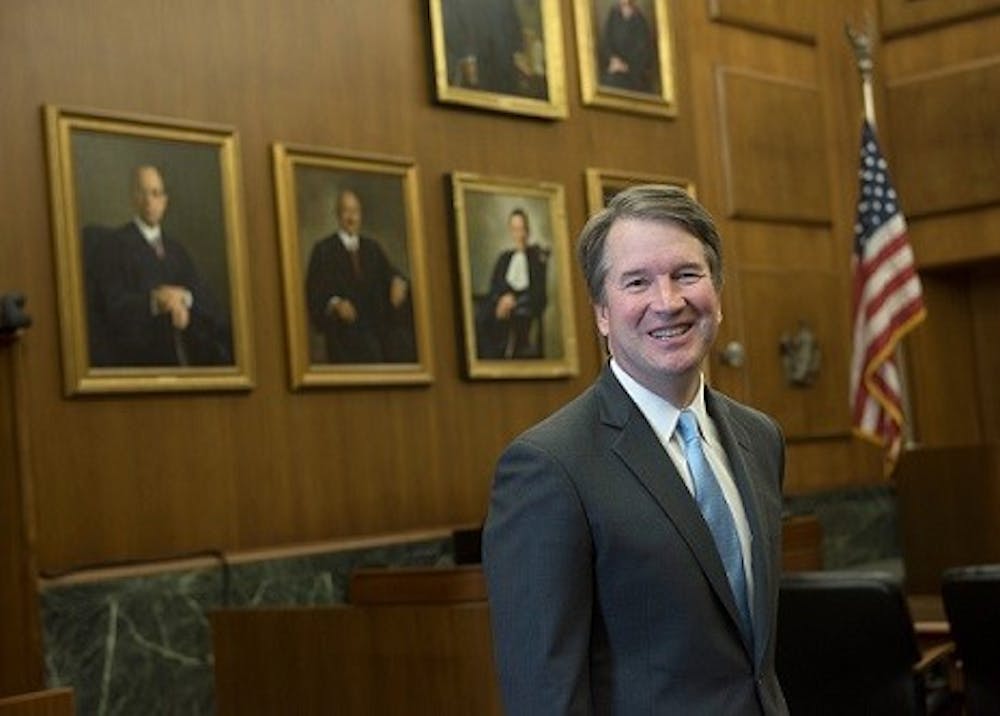President Donald Trump’s Supreme Court nominee Judge Brett Kavanaugh is currently undergoing the judicial hearing process, during which senators question him about his judicial philosophy to determine whether they will confirm him as a new justice. An issue of particular interest to the Senate has been Roe v. Wade, which many Democrats fear will be overturned if Kavanaugh is confirmed. Though Kavanaugh has advocated restrictions on abortion in limited cases, the judge’s explicit support for Roe v. Wade and Planned Parenthood v. Casey in former opinions and public statements, his reverence for stare decisis — meaning “let the decision stand ”— and the Court’s decades-long reliance on the precedent render it highly improbable that Roe v. Wade will be overturned if he is confirmed. Moreover, the fact that the Court has continuously upheld Roe v. Wade since 1973 despite the presence of staunchly conservative justices on the bench for decades means it is unlikely that it will be overturned now.
On Sept. 6, a secret email from 2003 was leaked to the New York Times in which Brett Kavanaugh allegedly stated: “I am not sure that all legal scholars refer to Roe as the settled law of the land at the Supreme Court level since Court can always overrule its precedent, and three current Justices on the Court would do so.” After the release of this email, the media quickly began using this written statement to suggest that Brett Kavanaugh explicitly plans to overturn Roe if he is confirmed. Seeing as this email was written in 2003, however, it is clear that Kavanaugh was attributing this hesitance to accept Roe as settled precedent to Justice Clarence Thomas and former Justices William Rehnquist and Antonin Scalia. To conflate that viewpoint with Kavanaugh’s own judicial approach to abortion would be to slander the Supreme Court nominee, as he has made no public condemnation of the Court’s precedent in Roe as of yet. On the contrary, he has done quite the opposite.
During his 2006 confirmation to the U.S. Court of Appeals for the D.C. Circuit, Kavanaugh asserted: “If confirmed to the D.C. Circuit, I would follow Roe v. Wade faithfully and fully. That would be binding precedent of the court. It's been decided by the Supreme Court.” He elaborated, “It’s been reaffirmed many times.” He has also expressed his support for other existing precedent on abortion, namely Planned Parenthood v. Casey (1992). In Casey, the Supreme Court ruled in favor of certain restrictions on abortion so long as they did not create an “undue burden” on a woman seeking an abortion, specifically defined as "substantial obstacles in the path of a woman seeking an abortion before the fetus attains viability.” Kavanaugh has expressly indicated his support for Casey, stating, “the government has permissible interests in favoring fetal life, protecting the best interests of a minor, and refraining from facilitating abortion … the government may further those interests so long as it does not impose an undue burden on a woman seeking an abortion.”
Even though Trump has suggested that Roe will be overturned in a Kavanaugh Court, we should interpret this statement with a grain of salt, especially considering the president’s propensity to exaggerate. Just because Trump says that overturning Roe is possible does not mean that Kavanaugh will follow suit, for a justice is not legally bound to the opinions of the president who appointed him or her. While it is possible that Kavanaugh may allow additional state legislated restrictions on abortion, these restrictions would still be subject to the “undue burden” standard that exists under Casey. Although I personally believe that further restrictions on abortion would be destructive to liberty, I also believe that it is important to distinguish between restrictions on abortion and the complete dissolution of this right entirely.
Though the Court has the authority to overturn former decisions, it rarely does so because of its reverence for precedent. Stare decisis is a judicial principle that encourages courts to respect past decisions for the sake of consistency. This principle is crucial to constitutional interpretation because it prevents judges from overturning cases for arbitrary reasons.
While the Court is designed to be insulated from public opinion to avoid the dangers of majority tyranny, the Court has a reputation for generally aligning its decisions with liberal shifts in contemporary values, as exemplified by cases such as Brown v. Board of Education (1954) and Obergefell v. Hodges (2015). Considering Roe v. Wade has survived for 45 years, it is incredibly unlikely that this precedent will be overturned in an age where doing so would so seriously conflict with the Court’s historical reverence for abortion rights.
Audrey Fahlberg is an Opinion Columnist for The Cavalier Daily. She can be reached at opinion@cavalierdaily.com.
CORRECTION: This column previously misstated the deciding date of Planned Parenthood v. Casey. It has been updated to reflect the correct date.







